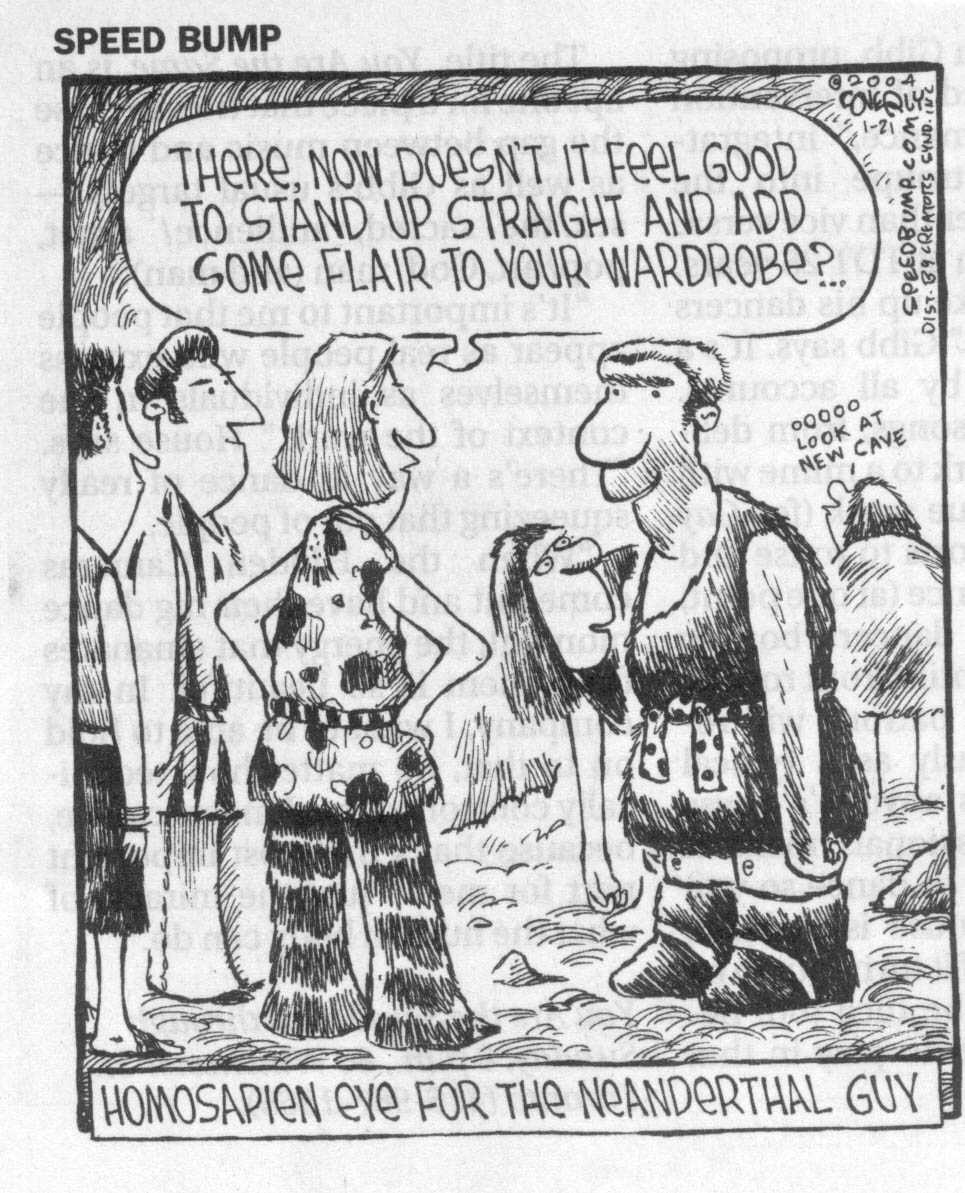PREHISTORY & ANCIENT HISTORY

4,600 MILLION YEARS AGO-->EARTH COMES
INTO BEING
3,500 MILLION YEARS AGO-->FIRST
PRIMITIVE LIFE FORMS
·
Due to existence of chemicals that
could combine and replicate
·
Oxygen levels gradually rose,
creating better conditions for diversity of life forms.
·
Simple organisms/single celled
similar to algae dominated life on earth for almost 3 billion yrs.
570 MILLION YEARS AGO-->COMPLEX
ORGANISMS EVOLVE
500 MILLION YEARS AGO-->FIRST
VERTEBRATES
430 MILLION YEARS AGO--> FIRST
PLANTS
400 MILLION YEARS AGO-->LAND ANIMALS
200-65 MILLION YEARS AGO-->DINOSAURS
65
MILLION YEARS AGO-->DINOSAURS
EXTINCT (asteroid?)
25
MILLION YEARS AGO-->PROCONSUL:
(E.
Africa-ancestor of apes & forest dweller)
15
MILLION YEARS AGO-->KENYAPITHECUS:
(
11-7 MILLION YEARS AGO-->SIVAPITHECUS:
(India/Pakistan—orangutan,
Asian apes)
ca. 5 MILLION YEARS AGO-->humans
branch off from apes
·
(Chimps share 97% of our DNA, use tools,
communicate in complex ways, & are more closely related to humans than to
gorillas)

5-1 MILLION YEARS AGO-->HOMINIDS:
prehuman & human
·
Australopithecus—prehuman
1) Australopithecus robustus-S. Afr. caves
2) Australopithecus africanus-S. Afr.
3) Australopithecus afarensis—

2.5
MILLION YEARS AGO-->cycle of repeated glaciation begins
2 MILLION YEARS AGO-->HOMO HABILIS
(handyman, toolmaker)
·
Ice Ages & interglacial period
cycle
·
Ice Ages occur every 100,000 yrs.
·
Interglacial periods last 20,000
yrs.
·
Plants & animals respond to
fluctuations by moving N. during milder periods & S. when glaciers advance
·
Early hominids follow advance
& retreat of animals & plants

1.7-1.5
MILLION YEARS AGO-->HOMO ERECTUS
·
(upright, larynx shift enables
speech)
·
twice brain weight of modern
humans
·
Scattered groups move N. to
·
Probably evolved in
·
Savanna requires upright mobility
·
Creative and critical thought
necessary for survival
1
MILLION-100,000 YEARS AGO-->adaption to cooler climates w/ help of
technology
·
(evolutionary shift from biology
to technology)
·
Settle in Eur. (1 million) &
·
Shelter (Eur. 380,000 yrs. ago)
·
Clothing
·
Fire (
·
permanent encampments 250,000 yrs.
ago
·
Efficient tools/weapons—hand ax to
kill, cut, etc. 200,000 yrs. Ago
·
Art (
·
H. sapiens, “thinking man” evolves
(250,000 yrs. ago) Afr., Eur.,
120,000
YEARS AGO-->Neanderthals: Eur. &
Levant
·
(
·
Massive build (needed lots of
fuel/food, which became increasingly scarce.
·
Rudimentary speech

100,000-35,000
YEARS AGO-->CroMagnon=>Modern Humans
·
(Homo sapiens sapiens)-African
origins
·
Migrated from
·
Constantly had to adapt to new
surroundings
·
Track deer, bring fire rock into
cave, predict salmon runs
·
Art associated w/ ritual: hunt,
birth, death
·
Cave paintings and figurines
·
Mixed gender groups
35,000 YEARS AGO--> NEANDERTHAL
EXTINCTION
·
Out-foxed? out-competed for resources? plague from
foreign germs brought by CroMagnon? war?
·
Lack of forethought (don’t track, don’t improve
tools, don’t cooperate with mixed gender groups)
·
No art has yet been found, but there aren’t many sites
to investigate
·
Buried dead ritually, used tools, hunted in
cooperative groups, decorated graves, nursed sick

20,000- 15,000 YEARS AGO-->
peak of last ice age.
·
Temperatures reached lowest level
·
Ice sheets maxed out
·
Sea levels dropped more than 330 ft.
·
Expose dry land & bridges between landmasses for
migration
13,000-8,000 YEARS AGO-->ICE
THAWS
·
Global temps, which had been rising since the coldest
point of last Ice Age, had reached present levels by 8,000 bce
·
As ice sheets melted, sea levels rose by 325 ft.
·
Dry lowland areas, such as Bering land bridge,
·
More water was available to fall as rain, so deserts
in tropical regions shrank
·
Populations of plants, animals, and humans rose
steadily
·
8,000-5,000 BCE-->FARMERS &
HUNTER-GATHERERS
·
Domestication of animals and crops
·
·
·
8,000 bce-- mud bricks,
·
7th millennium bce-- Irrigation
techniques in
·
6,500 bce--first known metallurgy,
·
6,000 bce--first stamp seals used,
·
5,500 bce-- first pottery,
5,000-3,000 BCE-->TECHNOLOGY,
URBANIZATION, TRADE
·
farming communities develop into cities
·
social life and organization changes radically and
rapidly
·
5,000 bce-- wheel/Mesopotamia; grain farming/Egypt+
·
4,500 bce--megalithic tombs/
·
4,000 bce--first temple-pyramids/Peru & plow/Europe+
·
3,300 bce--writing/Sumeria (dates vary)
·
3,100 bce--Narmer becomes first pharaoh of
3,000-2,000 BCE--> AGE OF
MONUMENTS
·
2650 bce--step pyramid @
·
2500 bce--bronzeworking introduced in mainland S.E.
Asia
·
2250-2470 bce--
·
2100 bce--Stonehenge reaches its final form, Britain

TODAY--> polar ice caps cover
1/10 of earth’s surface
·
Drop of only 8 degrees F in the world’s average
temperature would mean 1/3 of earth covered in ice